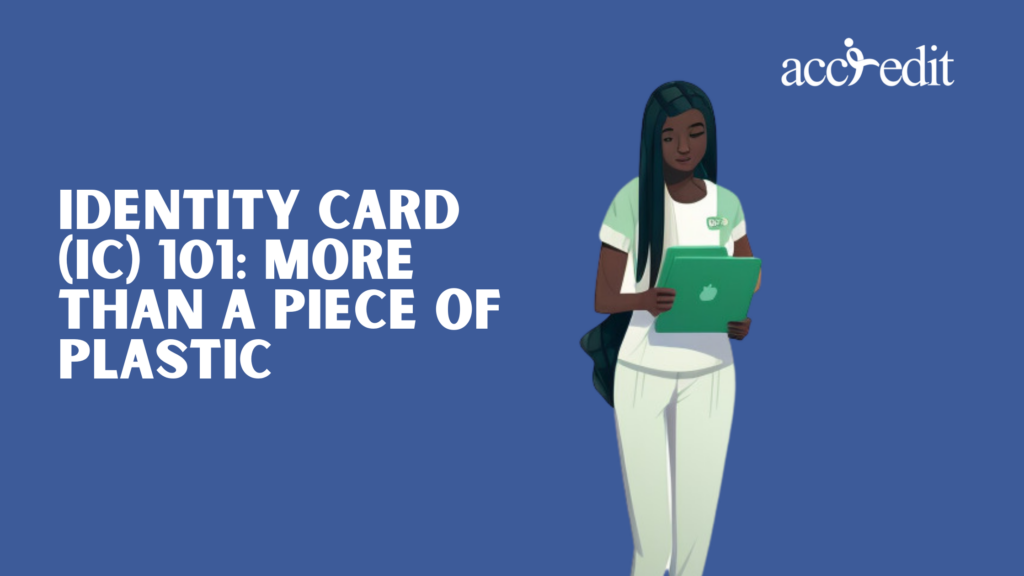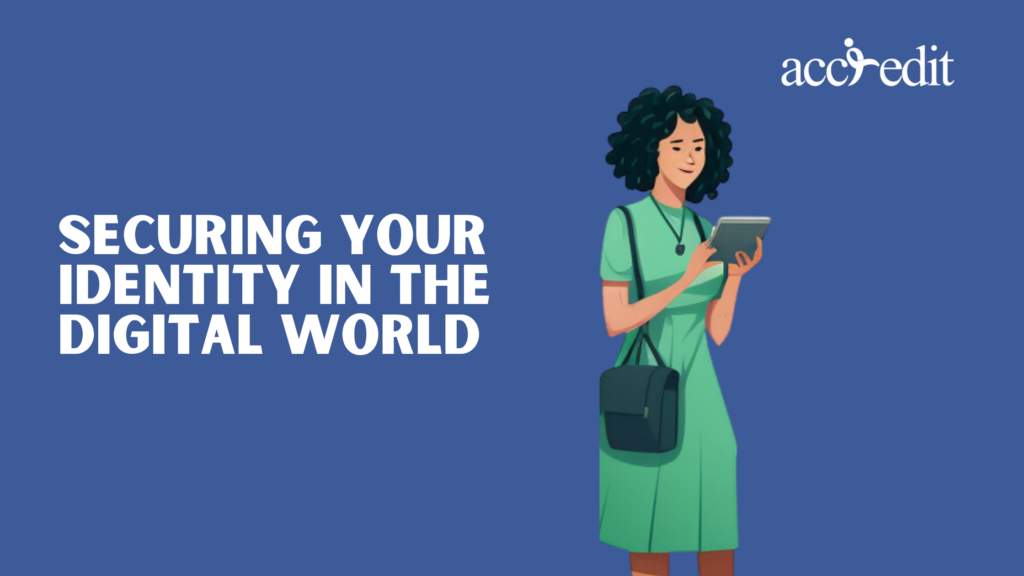
Do you agree that digitalization has revolutionised your world, and even moneylending is no exception? In Southeast Asia’s heart, Singapore embraces such a shift, emerging as a global fintech hub. Now, what about the concerns on whether you should not or should share your IC with an online money lender?
Online money lending platforms are indeed flourishing and granting borrowers like you quick, hassle-free access to financial assistance at your fingertips.
But along with the convenience comes a critical concern. With every digital transaction, your Identity Card (IC), the linchpin of your personal information, may be exposed. So, should you or not share it first, and what facts must you know?
Identity Card (IC) 101: More Than a Piece of Plastic

Your IC is not only a card; it’s a treasure trove of your personal information. It’s vital not only for confidential transactions but mainly for business dealings.
In truth, your IC is so crucial that Singaporean citizens and permanent residents like yourself must re-register during critical ages: once turning 30 and then again at 55. The requirement isn’t for the fun of the bureaucracy but to keep personal information up-to-date and relevant. As a result, the transaction needing an IC will lead to a smoother process, including moneylending.
The Online Money Lender’s Request: A Standard Protocol or Red Flag?

As you move forward with your plans to borrow from an online money lender for personal loans and other financial products, you then encounter a request for your identity card. It isn’t necessarily cause for the alarm alert to go off.
But, there are instances when sharing your identity card can lead to dire consequences. The potential misuse of IC information, identity theft, and fraudulent activities are substantial threats in the cyber world.
Understanding when and why you should share your IC online can mean the distinction between smooth sailing and stormy seas.
Singapore’s Laws on Sharing IC with an Online Money Lender

The relevance of the IC in Singapore is broader than identifying oneself. It’s among the most significant document that holds substantial legal implications. When it comes to lending money, both the lender and the borrower require you to be aware of the laws regulating IC handling.
Consider that only some online money lenders asking for your IC are legitimate. Awareness of Singapore’s laws regarding sharing your identity card is vital.
According to the Personal Data Protection Commission of Singapore, organizations, including licensed money lenders, are generally prohibited from collecting, utilizing, or disclosing an individual’s National Registration Identity Card or NRIC number.
The Personal Data Protection Act (PDPA) protects your most precious personal data and affirms its legal leverage that it won’t be involved in any misuse. If you suspect an unlicensed money lender or loan shark is asking for your IC illegally, the law empowers you to report this to the relevant authorities.
But knowing the difference between legal and illegal requests is critical in this digital era. How? Check the Registry of Moneylenders for the comprehensive list of licensed moneylenders under the Moneylenders Act.
Securing Your Identity in the Digital World

The digital era has brought every Singaporean and non-Singaporean borrower the best assistance with only a tap. But it’s also like a double-edged sword.
On one side, an online money lender presents a fast and efficient way to secure funds. And on the flip side, this convenience comes with potential security risks.
From phishing to data breaches, the misuse of IC information is a growing concern. Identity theft stories are not merely confined to such sensational news; they’re the harsh realities. As an online borrower, you must understand these risks and the role of online money lenders in assuring your cybersecurity.
Your IC is Your Fort – Protect It

Would you gladly surrender your fortress to your enemies?
Honestly, that wouldn’t be the situation you’d want to be in. It’s similar to your IC being a personal fortress that requires strong protection.
You can take several steps, like being vigilant about who you share your IC with. You must communicate over a secure platform and verify the online money lender’s credibility.
Speaking of credibility, licensed money lenders like Accredit are critical in guaranteeing your IC’s safety. Singapore’s Accredit and legal money lenders comply with a strict code of ethics, certifying your data is handled securely and responsibly. Besides your vigilance, technology comes to the rescue with tools and features designed to protect your personal information.
Features like two-factor authentication and data encryption shield your personal information. In addition, secure sockets layer (SSL) technology on sites guarantees data transmitted between you and the lender is secure and encrypted.
The Bottom Line: To Give or Not To Give Your IC to an Online Money Lender
Online borrowing often requires you to validate your identity. More often than not, it entails giving out your identity card details.
But does that mean you should always comply? Not necessarily. It’s essential to strike a balance between necessity and precaution.
A legitimate lender will usually have a secure method for you to submit these details, such as a secure portal on their website. In contrast, fraudulent entities might ask for your IC information via email or suspicious-looking sites.
The key is to discern between the two scenarios. Remember, a legitimate request for your IC will always prioritise your data’s security and will only be asked for once, usually during the application process.
Report Unlicensed Lenders Asking for IC Illegally
If you accidentally encounter an unlicensed money lender or loan shark asking for your IC details, knowing how to respond is essential. First, refrain from sharing any personal details, including your IC information. Then, report them to the authorities.
The Registry of Moneylenders handles complaints about unlicensed moneylenders. You may file the complaint online or call their hotline at 1800-2255-529. Alternatively, you can also contact the National Crime Prevention Council’s ‘X Ah Long’ hotline at 1800-924-5664 to report incidents of illegal money lending.
Safely Browsing Digital Money Lending with Online Money Lender
Online money lending in Singapore is a challenging task. The decision to share your IC with an online money lender may be intricate. Nonetheless, with a solid comprehension of the risks involved, steps to protect your identity, and the ability to identify legitimate requests, you can confidently become successful in your quest.
To all the potential borrowers in Singapore like you and beyond, remember to be sure and verify before you trust and protect your IC as if it’s your fortress. Equip yourself with the correct knowledge to differentiate between safe and risky online lending practices, and always choose licensed lenders like Accredit.
As you are obtaining information and becoming more vigilant are genuinely your best defences in the digital world of money lending. Your IC is your proof of identity; thus, protect it fiercely and loan responsibly.
You got this!

